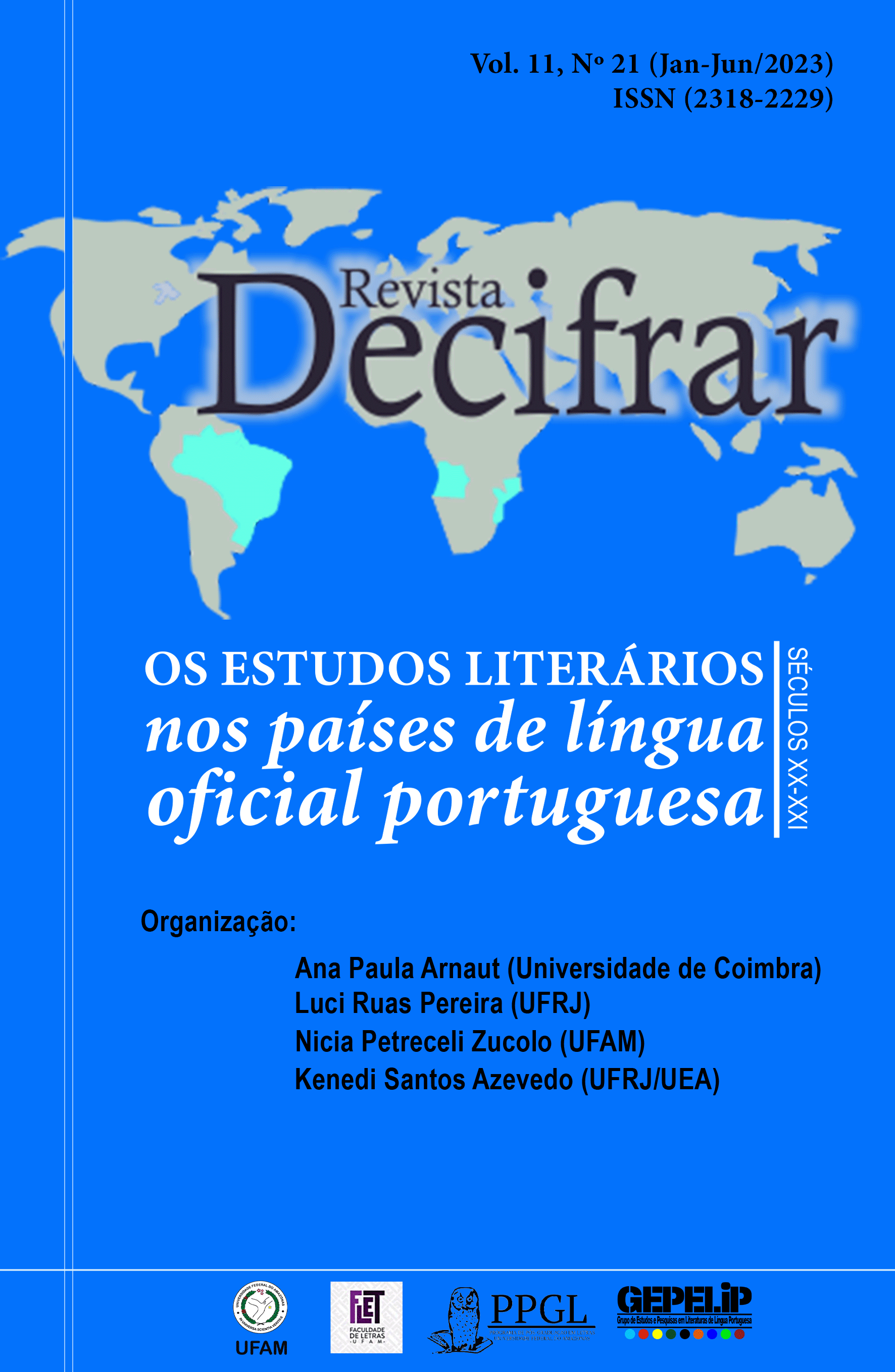WE ARE ALL MIXED, BUT WE ARE NOT EQUAL
THE CAPE VERDIAN IDENTITY IN A MATRIARCA
Abstract
This article aims to analyze the cultural aspects that construct Cape Verdean identity in A matriarca (2017), by Vera Duarte. The concepts of miscegenation that are developed within the novel are discussed. On the one hand, it is seen as overcoming the colonial heritage and understood as a social and cultural system that promotes and allows the harmonious coexistence of citizens. On the other hand, miscegenation can also be read, within the novel, as a discourse that masks some colonial/discriminatory practices naturalized in the cultural imaginary of the country. For this purpose, the assistance of postcolonial theories was necessary, especially the proposals of Stuart Hall (2003, 2006, 2017) and Edward Said (1995, 2005) that deal with identity construction. Thus, it is concluded that, in the novel, Cape Verdean identity is a cultural and dynamic construction of society, sometimes serving to identify with the “other” and sometimes allowing the reinforcement of historically learned discriminatory stereotypes.
Downloads
Downloads
Published
How to Cite
Issue
Section
License
Copyright (c) 2023 Sonia María Chacaliaza Cruz

This work is licensed under a Creative Commons Attribution 4.0 International License.
Todos os artigos desta revista obedecem a licença Creative Commons - Attribution 4.0 International (CC BY 4.0).









